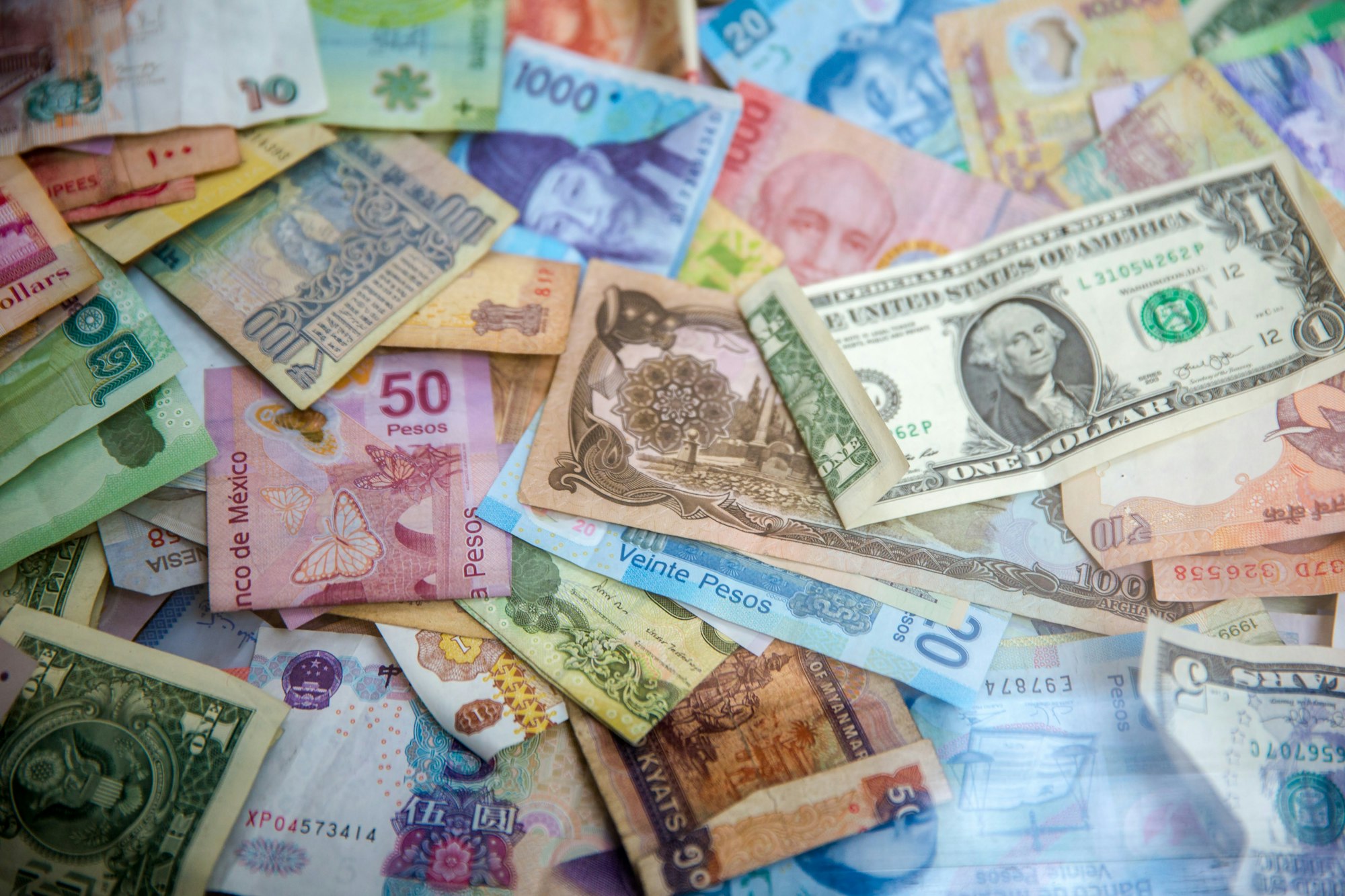Personal Finance for Engineers

I know interesting facts about King Akbar. I know all about my powerhouse cell friend Mitochondrion. I can draw my country's map with hand and I can march in boiling summer in perfect synchronization to showcase (thinking hard, I don't know what). If I put some stress then maybe I will also remember the strategy of countries in World War 2.
While I was taking care of country strategies in war, global issues that can destroy planet earth, and also understanding the like and dislike of kings in childhood (as I will need it someday in future). The education system thought it was okay to skip the part that managing money would be a life-changing skill.
This is the missing chapter that could have made my life easier. The things mentioned are strictly in priority order. You should not jump to the next item until the current one is taken care of.
Money’s greatest intrinsic value—and this can’t be overstated—is its ability to give you control over your time - Morgan Housel
1. Health Insurance
The only expense that has the maximum probability of crippling you. It has the power to remove the illusion that you have financial stability. No matter if the ROI was 12% or 22% on your investments, it can vanish in a few weeks if this cheat code gets activated in your life.
Having good health insurance should be the prerequisite of savings
In case you are having thoughts excuses like
a) my employer is covering me, I don need health cover
b) I am in perfect shape, will take this cover when my hairline will shift by a few inches
The objective of this cover is to minimize the financial instability that comes up when hospitals print big bills in case of emergency or when you find out a lifelong threatening disease. It is absolutely essential in case you are the major earning member at home and your parents are dependent on you. So I will be covering parents too (just in this section).
Here's a quick cost analysis
| Type | Self | Parents |
|---|---|---|
| Super Top-up | Cheap (<3k) | Moderate (<10k) |
| Regular Health Insurance | Moderate (<10k) | Expensive (<25k) |
Super Top
This plan covers a bracket (like 3-15 lac) and gets activated once the expense reaches this bracket. Suppose you are going under a heart surgery that will cost around 10 lac. This cover will help you with 7 lac since any expense after 3 lac will be handled by this policy. Think of this as a retirement fund. You can not access the fund until you are retired. In the same way, you can not access this policy money unless you touch the opening bracket.
Since there are low chances that you will enter such a bracket, it is super cheap.
Regular Health Insurance
This is the base policy that gives you cover from the very first bill of the hospital. Since there are high chances that it will get triggered, it is moderately priced for you (since you are young) and expensive for parents (high chances of policy activation). Most likely you will also have this policy from your employer.
The only reason not to depend on the employer policy is that there will be some diseases (cancer, heart issue, etc) that are covered after 3-4 years of the policy. So in case, you switch jobs, these ailments may not be covered on day one. That's the only reason it's crucial to have a stable policy of your own and that too when you don't have any pre-existing disease.
Best time to get health insurance is when you don't actuall need health policy
Action Pointers
- Look for the hospitals that are close to your home, where you will go in case of emergency, now shortlist policies that provide cashless cover (will directly charge insurance company) in these hospitals
- Before you go into the research paralysis to find the best policy. Just go for Super top-up for yourself and your parents and rely on the employer's policy for the base cover until you find the best policy and satisfy your engineer brain
- In case you already have clarity get a base plan & super top-up. Use employer policy first, so that you can get a discount on your own policy (under no claim bonus)
2. Term Insurance
The most important factor when you take a loan from the bank is collateral (Need 50 lac? sure, just drop house papers). It's a way for banks to take care of their money in case you are not able to return it. Term Insurance is the same. It's the safety net for the people who are dependent on you (parents, wife, children, siblings) in case your body shuts down tomorrow or in 10 years when they have upgraded their lifestyle because you were earning well.
Term Insurance is the income replacement plan. It will take care of your loved ones when you are gone (at least for the next 10-15 years). Do not think of it as an investment opportunity (just imagine you bought shit alt-coins with this money and forget about it). Your hope is to never use it (same as the bank would never want your house). There are options in the market that convert Term Insurance into an investment strategy (pay X amount in Y years and if you are alive after 60 years, then we will give all the money back with a 12% premium). Don't follow these strategies. Term insurance is the safety net, not an investment technique.
Treat Term Insurance as a donation that will not return anything until you are alive.
You will soon find that Term Insurance comes with a lot of add ons.
Drink and driving? Just enable this add-on to cover it. Having suicidal thoughts? Enable this top-up and you are free to commit it. Don't get into the trap of add-ons. Work on your lifestyle instead and go with the basic policy.
Action pointers
- Involve a reliable agent. I know you are a coupon hunter and will get it cheap online. The issue is if it ever gets redeemed, most likely your parents will do the paperwork. In such cases, it's better to involve humans, online insurance portals are not
userparent-friendly. - Term insurance is usually 10-15x of your annual income + Add on existing liabilities (education loan, home loan etc)
- Go for a company that has a good settlement rate
3. Emergency fund (money parking)
This is the fund to tame uncertainty in life. Your best friend met with an accident and was not aware of this article. So he doesn't have any insurance and you have to save his life.
It's important to keep some money aside for on-spot situations. Getting the latest iPhone or designer clothing doesn't come under this fund.
Do not keep this fund in the bank. I did this mistake at starting. You need to put some friction in accessing this money, otherwise, you will spend it easily.
The safest bet is to put this money in liquid funds. The redemption time is around 30 mins for 50K.
Action pointers
- Store chunk of money in an emergency fund
- Some P2P vendors give lucrative returns, park some portion if you are not happy with 5-6% returns
- Make sure the liquidity is high (you can get money in the bank within a few hours)
4. Wealth creation
When you define savings as the gap between your ego and your income you realize why many people with decent incomes save so little. - Morgan Housel
The first reaction (being engineers) is to understand the complete stock market. To go deep into the fundamental and technical analysis of companies. And then picking the underdogs and investing in them for 10x returns. Or timing the market.
All these are good approaches but you will rarely find time to do all this along with your job. This process is slow but returns are good. You start playing the long-term games once you study company for months and panic attacks vanish when the market crashes.
This process usually takes months (years at starting), so what to do till then? You can't be Ray Dalio or Warren Buffet on day one.
Start a regular SIP in Index Funds. Let's unfold this magical statement.
What's SIP?
SIP is just a fancy word for installing discipline in our lazy bodies. It's a commitment that you will invest regularly (weekly/monthly).
Usually, you will allow the broker (app through which you will be investing) to pull money automatically from your account every month (or week). This also helps in Dollar Cost Averaging.
What are Index Funds?
It's a way in which you can invest in almost all the significant companies at once. It's like ordering a platter instead of individual items from à la carte. Nifty 50 is one such index fund that invests in the 50 largest companies.
Another advantage of the index fund is the low expense ratio. Think of expense ratio as a fee charged by the managing company (for advertisement, management etc).
Tax Saving Mutual Funds (ELSS)
As you will grow in your career, saving to avoid tax will become a requirement. ELSS mutual funds could be a good investment (because it has a lock-in period of just 3 years). Once you have done it for 3 years, you can start rotating the funds. This will give you the freedom to invest in other places after 3 years.
Action Pointers
- Stocks - Invest majorly in index funds
- Mutual Funds - Invest in direct growth plans (ELSS) as starting point (helps in tax saving too)
- Don't disturb the money unless it's required
- Save at least 40% of your income
The first rule of compounding: Never interrupt it unnecessarily. - Charlie Munger
5. Side experiments
Once in a while, you will come across some investment that will make you rich quickly. The usual advice is to stay away, but it's difficult to learn some lessons the easy way.
Keep some portion of your salary (5-10%) for such side experiments, go ahead and buy some shitty alt-coins, or rock NFT's, investing in art or even foreign markets.
Action Pointers
- Invest 5-10% of income in side-experiments for learning and fun
6. How to measure financial life?
You will eventually get into the trap of credit cards (if not already). But credit cards can act as a great tool if used properly.
I use two credit cards. One card is used for essential services (grocery, petrol etc) and another for leisure activities (expensive dinner for Instagram, shopping to signal supremacy, gadgets for pseudo productivity etc).
At the end of every month, I evaluate the use and do course corrections accordingly. The credit card is one of the best ways to capture your digital footprint.
Action Pointer
- Track your expenses periodically (preferred monthy) and categorise them into essential and luxury buckets
7. Bonus Section - What do I use (without sneaky referral links)?
- Insurance Shortlisting (#1, #2) - Ditto
- Mutual funds & Money Parking (#3, #4) - Niyo Money
- Stocks (#4) - Zerodha and Vested
